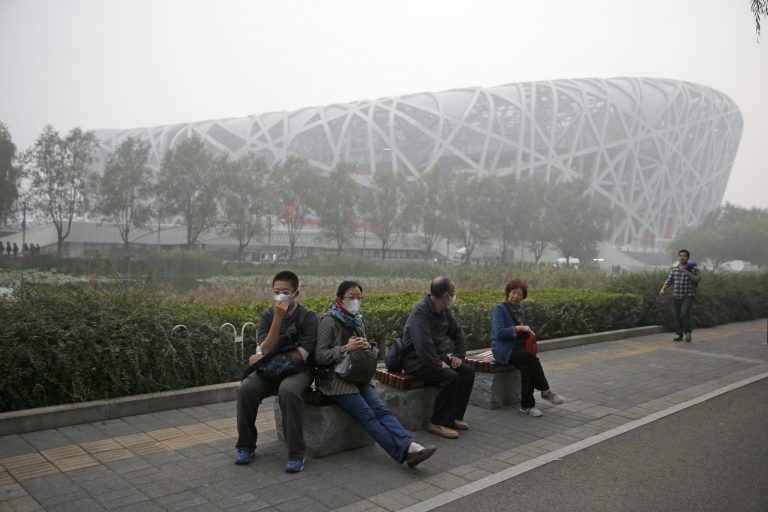
The extreme air pollution in China’s biggest cities is world-famous, with photos circulating the globe of commuters wearing masks and smog so thick the tops of buildings disappear. With that kind of air, how can anyone be expected to study?
A few international schools in Beijing are taking on the problem, installing their own private air filtration systems to ensure their students are breathing clean air – at least while on school grounds.
The Beijing Times reported that the International School of Beijing has outfitted its two 8,000-square-meter indoor gymnasiums with 24-hour air filtration systems, to the tune of US$ million.
The Lycee International Francais Charles de Gaulle de Pekin is also installing its own air filtration system. When the system is fully functional next year, the Lycee will become China’s first French international school with such an air filtration setup.
Other schools, including the Harrow International School Beijing, the Canadian International School of Beijing and the International Montessorie School of Beijing have also set up filtration systems and monitor air pollution levels to assess whether outdoor activities are safe for students.
When air quality is especially bad, some schools simply cancel all sports and other outdoor events. The new filtration systems will allow schools to hold classes and other activities within the “safe” breathing spaces.
The battle between education and air quality isn’t only affecting international schools. Air pollution and high levels of smog may also determine whether students choose to study abroad in a particular country or location, especially as countries like China become increasingly popular for international students seeking a semester abroad.
While most countries in North America and Europe have relatively low levels of air pollution, the same is not true for countries like China and India, which suffer from poor air quality, especially in cities. Pollution in some locations can reach above 200 AQI (Air Quality Index, which measures air quality on a scale of 0 to 500). An AQI above 100 is considered unhealthy, and above 300 is hazardous.
Students who spend time in a city with poor air quality, like Beijing, will be exposed to potentially harmful particle pollution. Even a short period of exposure, as little as a week or two, can negatively affect a student’s health, especially if the student has asthma or other respiratory issues.
Like the international schools, some savvy study abroad programs are taking steps to protect their students from the occasionally dangerous air outside.
Simone Hlavaka, the Director of Health and Wellness at NYU Shanghai told USA Today that the program’s campus “is fitted with an air filter system” and the residence halls also have air purifiers. Study abroad program provider CIEE has also installed purifiers in its study center and Beijing offices, and other programs are doubtless following the same path.
Students truly concerned about air quality would also do well to remember that Beijing isn’t the only city in China. Many study abroad programs have sites in other cities or even more rural areas, where students are able to breathe more freely – and see their textbooks clearly.
Like this? You’ll love these…
New visas make it easier for students to travel between Canada and China
US, UK most popular destinations for China’s wealthiest students







